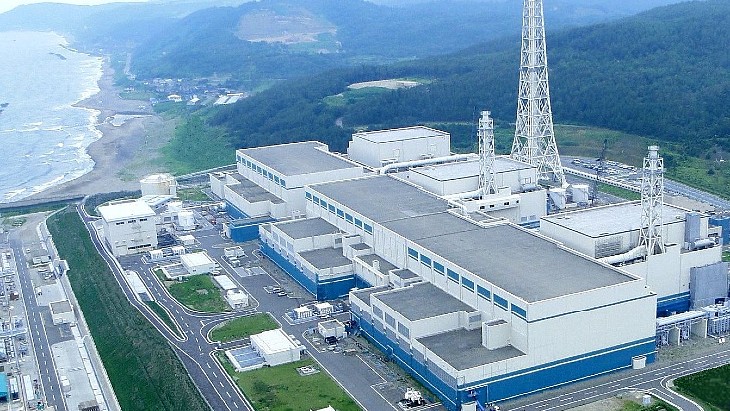The International Court of Arbitration has ruled in favour of Russia's Atomstroyexport (ASE) over its claim for compensation after Bulgaria cancelled the Belene nuclear power plant it had been contracted to build. The Bulgarian Energy Ministry has stressed however that the Court ordered the payment of half of the total sum the Rosatom subsidiary had sought to receive.
Bulgaria's National Electricity Company (NEK) awarded ASE the contract to build two 1000 MWe reactors at Belene, on the Danube River near the Romanian border, in 2006. The Bulgarian government scrapped the project in 2012 amid difficulties in attracting investors to the $10.5 billion project.
In a statement today, Bulgarian Energy Minister Temenuzhka Petkova said the Court had "only" ruled that ASE be compensated for the cost of equipment it had produced for the plant. All other claims, including damages and lost profits for related expenses incurred outside its contract with NEK, had been ignored, the minister said.
ASE's had claimed a total of €1.2 billion ($1.34 billion), but the Court has ordered the payment of "nearly half that", Petkova said, adding that NEK had learned of the Court's decision by email late yesterday.
But, citing a source at Rosatom, Nuclear.Ru reported that the Court had "satisfied the main requirements of JSC Atomstroyexport to pay for work performed and the equipment ordered, as well as compensation for interest and legal costs, including the attorneys' fees of Sidley Austin LLP". Non-payment will incur a penalty of €167,000 per day, the source reportedly said.
The Belene saga dates back to 2005, when the Bulgarian government approved construction of the plant and in October the following year, NEK chose ASE over a Skoda-led consortium to build the plant comprising two 1060 MWe capacity third-generation VVER-1000 (AES-92) units. ASE led a consortium including Areva NP, Siemens and Bulgarian enterprises in the project. The contract was signed in January 2008.
Russia offered a loan to finance construction activities until a strategic investor was found, but this offer was rejected by the Bulgarian government in 2010. In November that year, NEK signed a memorandum of understanding with Rosatom to establish a new project company - Belene Power Company - with initially 51% being held by NEK. For its part, Rosatom was to endeavour to arrange financing for the project, attract other investors, and facilitate ASE achieving commissioning of the reactors by 2016 and 2017.
The non-binding agreement called for Belene Power Company to be established before April 2011 and for construction to resume before October 2011. However, there remained several issues to be resolved, notably the cost of the project.
In March 2011 the government said equipment being built for Belene might be installed alongside similar units at Kozloduy instead. In July that year ASE took NEK to court for non-payment of $58 million for equipment supplied. In September, they signed a supplement to their agreement on the construction of the Belene plant, extending it until the end of March 2012. While NEK stalled as it sought Western investment funding, ASE said that work on the foundation pit for the first reactor at Belene had been completed and other preparatory infrastructure was in place.
In March 2012 the government said that it would pay for one set of VVER-1000 hardware which had already been manufactured and install it at Kozloduy as an AES-92 unit. This appeared to amount to about €500 million. However, ASE claimed a further €500 million in damages for the aborted project.
In February 2013, after the resignation of the Bulgarian prime minister and cabinet, parliament confirmed that the project would be abandoned in favour of building a new unit at Kozloduy. However late in 2014, following an election, the matter was again under consideration.
Researched and written
by World Nuclear News





_91467.jpg)
_47120.jpg)
_16439.jpg)





